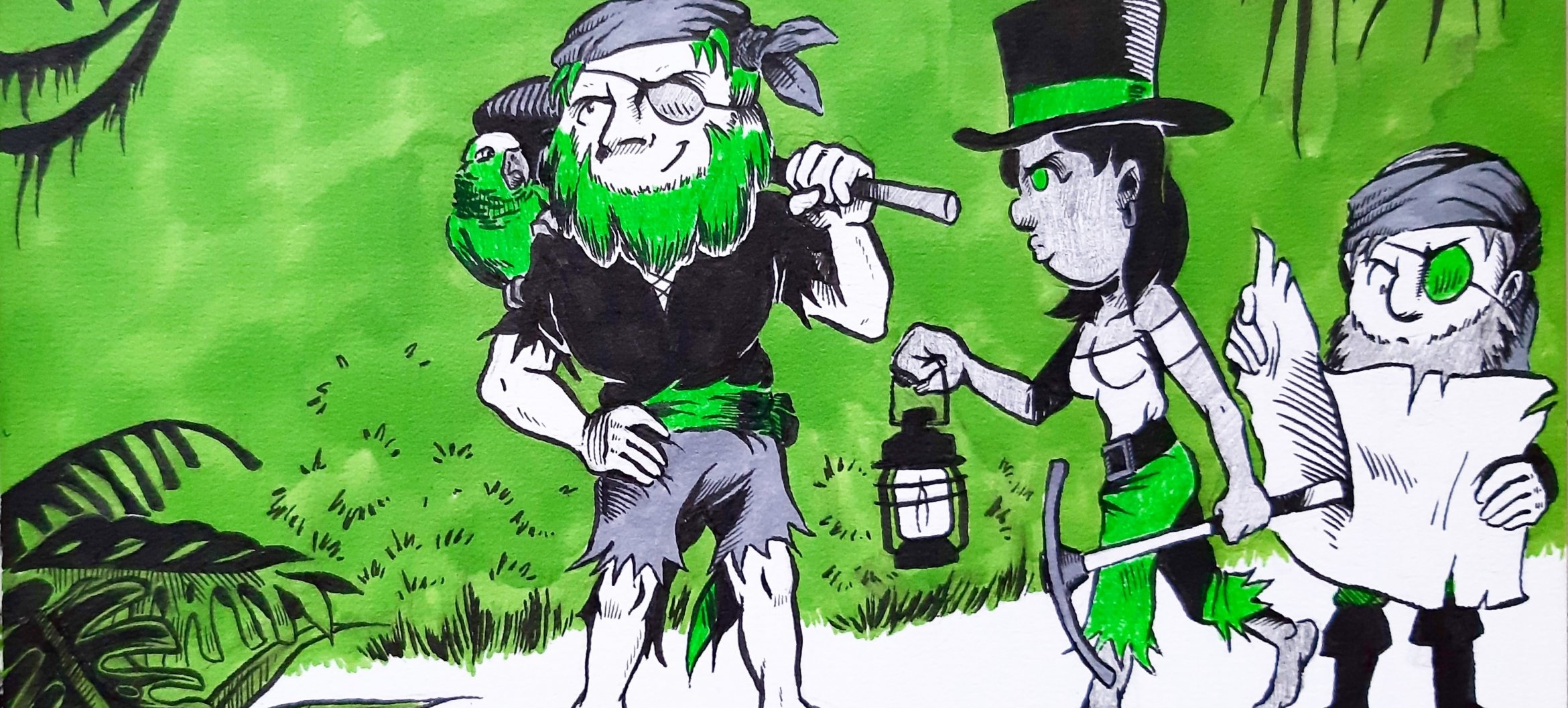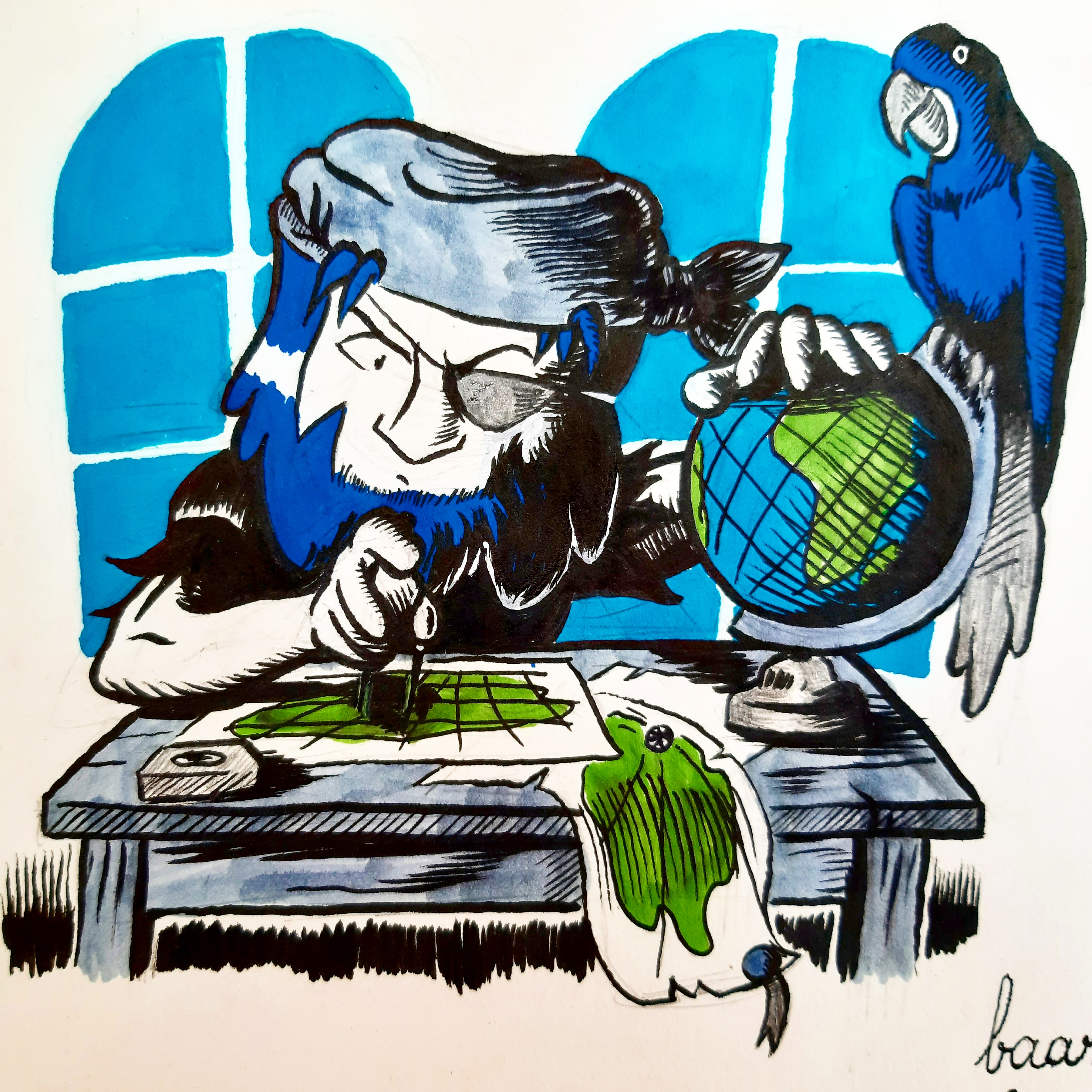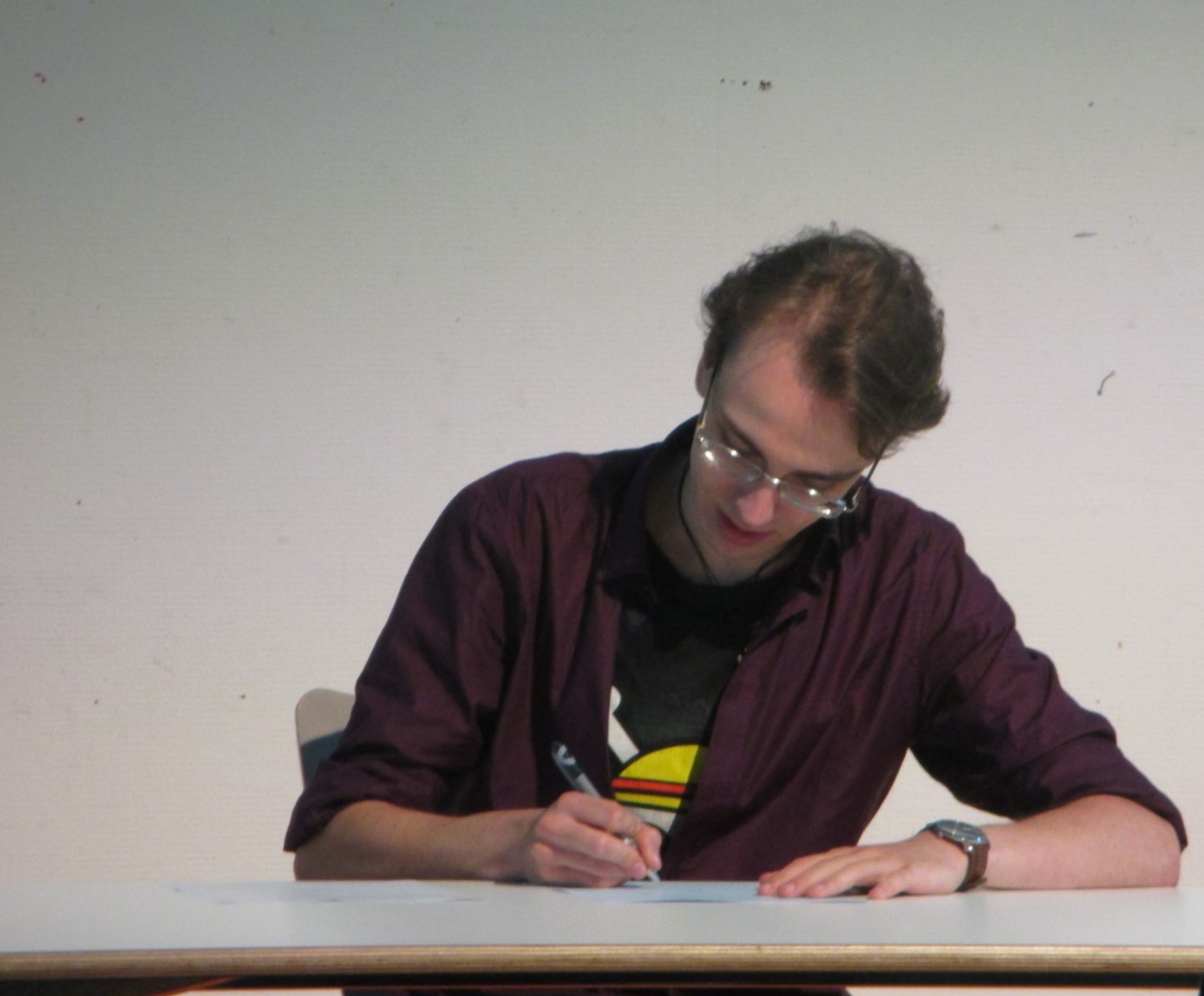How to start as an entrepreneur
'In my classes, I was taught many valuable things about my creative process and my artistic development. But there was one important part of the professional practice that didn't get much thought: how do I turn my art into my job?'
Gijs Kreutzkamp graduated in Comic Design in 2020 and recently followed the Starters Programme at ArtEZ Business Centre. In this program, you will follow 4 workshops, and we help you clarify how you can do business that suits you and where you need to focus. Finally, you will investigate what your position as an artist can be in the cultural field. Read Gijs's story about this program, what concerns him, and his first steps in developing his own professional practice.

During my four years studying at ArtEZ, I learned a great deal. I learned what it means to make comics, what story I have to tell, how to narrate it visually, what my reasons are to tell that story, how to do research, and much more. In my classes, I was taught many valuable things about my creative process and my artistic development. But there was one important part of the professional practice that didn't get much thought: how do I turn my art into my job? For that reason, I'm very happy I participated in the Starters Programme at ArtEZ Business Centre. The workshops they offered me were enormously helpful in the course of translating my artistic activities to business terms.
Within the art world, it seems very little attention is paid to the question how you can make a (good) living from your art. Whether it's paintings, sculptures, installations, or in my case, comics: money is often regarded in a negative way. I wonder why? At the end of the month, don't we all have bills to pay? Everyone has to do groceries a few times a week, right? In the end, you may have perfected your skills as an artist, but if you don't know how to sell art (and to whom, and at what price), then it's going to be quite a challenge to put bread on the table.
Whether it's paintings, sculptures, installations, or in my case, comics: money is often regarded in a negative way. I wonder why? At the end of the month, don't we all have bills to pay?
For that reason, I'm very happy I participated in the Starters Programme at ArtEZ Business Centre. The workshops they offered me were enormously helpful in the course of translating my artistic activities to business terms. At any rate, they helped me on my way; the programme consisted of four workshops in two days, so obviously there is no time to discuss every aspect of entrepreneurship. But what you do get is a solid foundation: an understanding of core concepts and ways of thinking, which are essential to turning your art into your job. A foundation that allows you to build your individual business in a way that is relevant to your specific professional context and practice.
 In my case, that foundation already made a major difference. Comics are hard to turn into a business pitch or an application for financial support or funding. And explaining the 'usefulness' of art has always been a challenge, especially when you have to explain it to people who know very little about art. Besides, comics don't get the same respect as an artistic medium here in the Netherlands as they do in Belgium and France, for example. That means I don't have the same options to get my comics published here: the publishing houses for comics here are fewer and smaller than in other European countries. And that means that, during the COVID crisis, they have to play it safe. Publishing the work of a debuting comic maker, like myself, always carried a little more risk, but now? A large percentage of the rejections and obstacles I've faced so far, have been connected to COVID-19. And furthermore, the business rules relevant to my professional practice in the Netherlands are less concrete and well-developed than they are elsewhere. There is no clear norm that I can rely on.
In my case, that foundation already made a major difference. Comics are hard to turn into a business pitch or an application for financial support or funding. And explaining the 'usefulness' of art has always been a challenge, especially when you have to explain it to people who know very little about art. Besides, comics don't get the same respect as an artistic medium here in the Netherlands as they do in Belgium and France, for example. That means I don't have the same options to get my comics published here: the publishing houses for comics here are fewer and smaller than in other European countries. And that means that, during the COVID crisis, they have to play it safe. Publishing the work of a debuting comic maker, like myself, always carried a little more risk, but now? A large percentage of the rejections and obstacles I've faced so far, have been connected to COVID-19. And furthermore, the business rules relevant to my professional practice in the Netherlands are less concrete and well-developed than they are elsewhere. There is no clear norm that I can rely on.
What do I want to ask for my work? What can I ask for my work? What should I ask for my work? I'm trying to answer all these questions to myself and I always ask my colleagues and fellow alumni for their opinions, as well. How do they do things? What do they base their choices on? I've always been very motivated when it comes to figuring this out.
For those reasons, too, it's very important for me to grow my knowledge of the business aspects of my practice. As I'm writing this, I've just registered for the 'summer camp' of Comic Art Europe, an organization that promotes European comics within and outside the EU. At the summer camp, the participants will receive instructions on promotion, negotiations, approaching publishers, etc. I'm also constantly comparing prices. What do I want to ask for my work? What can I ask for my work? What should I ask for my work? I'm trying to answer all these questions to myself and I always ask my colleagues and fellow alumni for their opinions, as well. How do they do things? What do they base their choices on? I've always been very motivated when it comes to figuring this out. Because I don't just want to get by - I want to make a living with my comics. Comic artist is the profession I chose - not shelf stocker, mailman or cleaner. I want people to read my stories! And I'm convinced I can do it. I just have to find a publisher who's willing to take a chance with me...
Gijs Kreutzkamp (23) graduated from the Comic Design program at ArtEZ University of the Arts in 2020. His graduation comic: "De Avonturen van Kapitein Geis" (or, in English: The Adventures of Little Captain John), an adventure story about a young pirate. His comics are mainly intended for an audience of children and young people. He hopes to generate among them a renewed interest for the medium of comics.

Follow Gijs
Ready To Start?
ArtEZ alumni who are about to start their own business can join the (free) Startup program of the ArtEZ Business Centre. During the workshops, we help you clarify how you can do business that suits you and where you need to focus. Finally, you will investigate what your position as an artist can be in the cultural field. There is a lot of attention for personal and individual guidance so everyone can work from their unique business concept.
for more information and how to apply: Startup Program